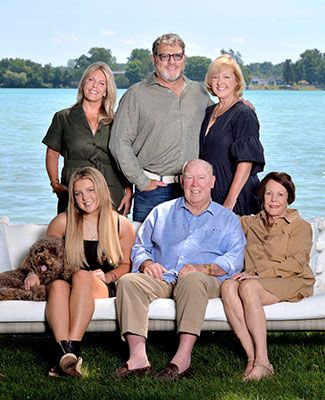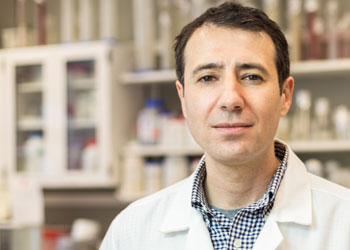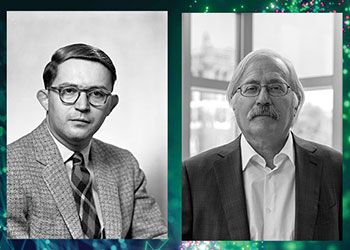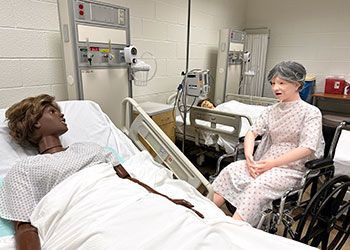Innovation Supercharged
A $6M gift from Stephen and Sally Hickman and their family will bolster a new Clinical Innovations Program, and support an endowed faculty position at the intersection of human and animal health care.

Innovation Supercharged
A $6M gift from Stephen and Sally Hickman and their family will bolster a new Clinical Innovations Program, and support an endowed faculty position at the intersection of human and animal health care.
August 25, 2022Alumnus Stephen Hickman (’64, Business), his wife Sally, and their family—daughter Stephanie Hickman Boyse, a 1990 graduate of the College of Communication Arts and Science; daughter Tracy Hickman who earned a degree in interior design in 1988; and Tracy’s spouse Chad Munger, a 1988 graduate of the College of Arts & Letters—have come together to make a $6 million gift to support cancer research and treatment at Michigan State University.
The gift will create a $3 million expendable fund that will fuel research and initiatives that advance the standard of care in veterinary and human medicine, including a clinical innovations program in the College of Veterinary Medicine.
The remaining $3 million will establish the Hickman Family Endowed Chair in Oncology, which will take advantage of the synergy between veterinary and human medicine to develop diagnostic and therapeutic tools to fight cancer in people and animals.
“These gifts will support work offering great promise for human and animal health care,” MSU President Samuel L. Stanley Jr., M.D., said. “I’m grateful for the Hickman family’s confidence in Michigan State’s stewardship of their generosity. Such transdisciplinary research is a vital element of the excellence and impact MSU’s strategic planning envisions.”
The Hickman family’s roots are in Adrian, Michigan, where Steve’s father helped found Brazeway, Inc., which, today, is the world’s largest producer of innovative aluminum components for the HVAC, automotive, appliance and commercial refrigeration industries. To the same degree that Brazeway was the family business, philanthropy became a family tradition that now spans three generations and has made a transformative impact in a variety of areas, in their home communities and beyond.
“We feel a responsibility to give back to a community that has been good to us,” said Steve Hickman. “Our giving started out in small doses, but now we are focused on making an impact which takes us to a whole new level.”
Sally Hickman adds: “MSU reaches into small communities and collaborates. We recognize the depth of MSU and the resources it has to make a difference.”
Contributing to work that advances efforts to vanquish cancer has long been a philanthropic priority for the Hickmans, and the family has been impressed by MSU’s collaborative, multidisciplinary approach to research and commitment to improving access to quality health care across the state.
“The Hickman family is inspirationally purpose-driven,” said MSU’s Executive Vice President for Health Sciences Norman J. Beauchamp Jr., M.D. M.H.S. “They share our commitment to hastening the pace at which the most promising advances in cancer diagnosis and treatment are made available to all. This is a gift that fosters integration, collaboration, and synergy, now and for the decades to come.”
The Deans of the Colleges of Human Medicine and of Veterinary Medicine noted that the Hickmans’ generosity builds on the capacity of the Institute for Quantitative Health Science and Engineering at MSU.
“The endowed chair will support a translational scientist at the very highest caliber,” said Dean Birgit Puschner, College of Veterinary Medicine. “One who in turn will attract other clinicians and researchers to our clinical innovations program.”
Aron Sousa, Dean of the College of Human Medicine, added: “A significant fund to support research alongside the fund for a chair position will help researchers answer questions no one has thought of yet, allowing us to explore promising new leads and to lay the groundwork for new discoveries that will preserve health—not just treat diseases after they occur.”




